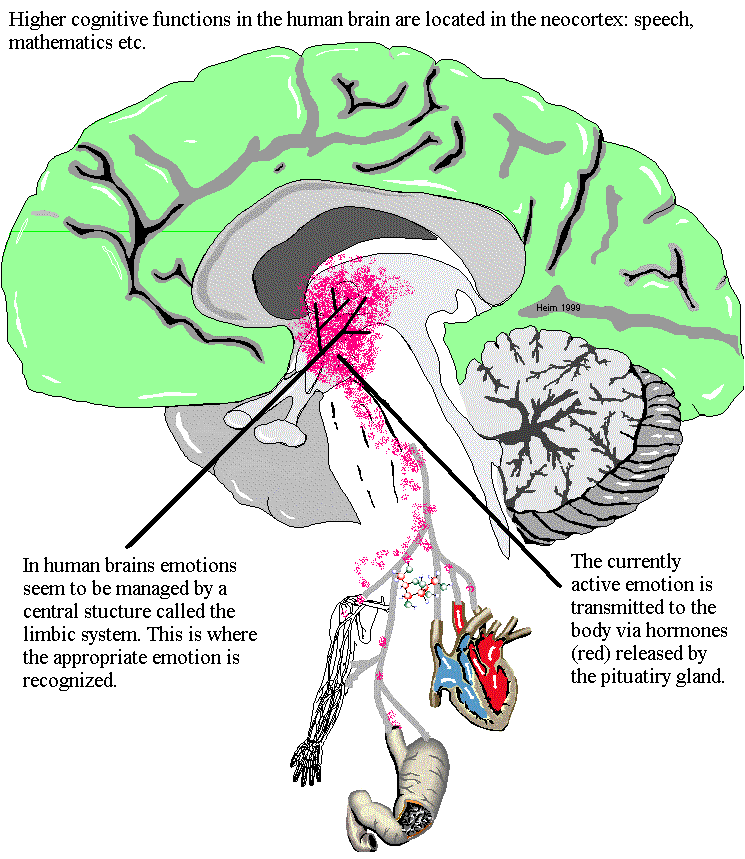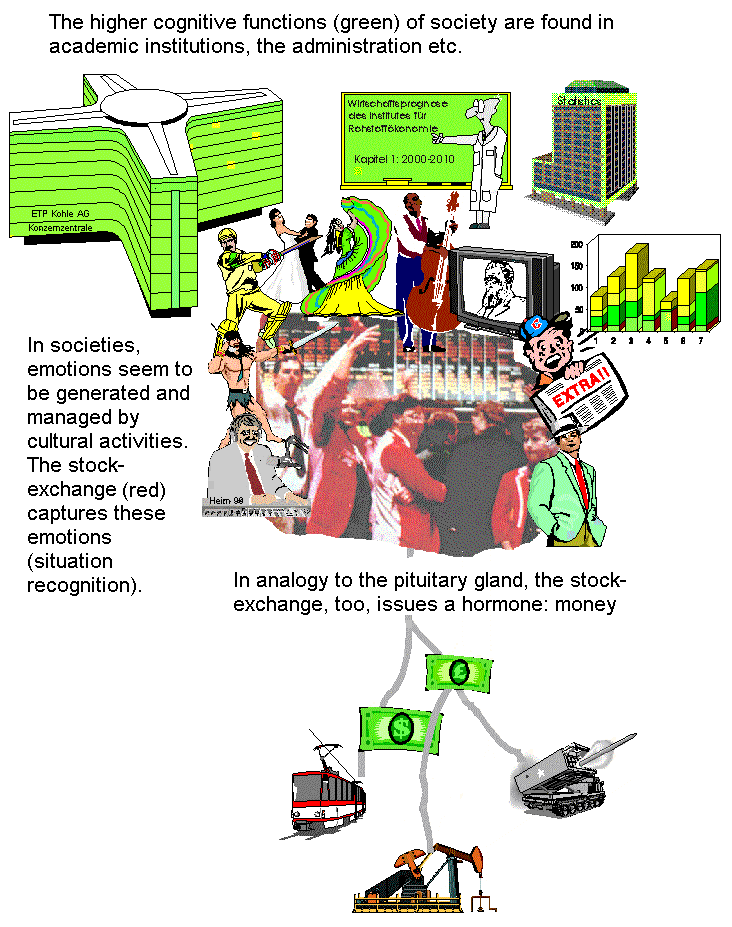| |
A company limbic system may manage
emotions
|
|
| |
In a human
brain,...

|
|
|
| |
|
|
| |
in a large society,...

|
|
|
| |
|
|
| |
and in a
company:
Situation
recognition by a company limbic
system: A large
independent department or company
structure will mainly be
concerned with constantly
interpreting the global economic
and political envirnoment as well
as internal company affairs. The
findings of this department will
then be moulded into a company
strategy. The company strategy
can be identified with an
emotion. As the limbinc system in
a human brain, the "company
limbic department" will be
the centre of a rather diffuse
and widespread system of neural
connections (as opposed to the
rather specific information
exchange between, for example,
operative departments). Employees
of this department will spend a
good deal of their time with
reading newspapers, scanning
theinter- or intranet, social
activities, visiting colleagues
in all sorts of departments etc.
Emotion
realization via thecompany budget
as hormones: People
usually go where money can be
expected to be most abundant. If,
for instance, the European
Communion calls for proposals
regarding "research &
development" activities into
the climate change, companies and
institutions from all over Europe
wills start to apply their
intelligence to anything to do
with climate change. Similarly,
the "company limbic
system" should exert a
strong influence over the yearly
budget. Emotions can be clearly
associated with a certain
distribution of money. If the
current emotion is
"aggressive expansion"
much money might be directed
towards recruiting, research
& development, maintenance.
If, however, the company emotion
is rather "threat of
bankrupty", money will be
deflected from long-term
investments towards departments
and projects capable of producing
short-term revenue.
|
|
|
|
| |
|
|
|
| |
Questions
open to discussion...
In how far could the work of the
"company limbic system" be
formalized, anwering the following
exemplary questions:
- how many people should work there
and what should be their
qualification?
- should the department be defined
as a fixed set of people or
rather as a rule of meetings and
discussions, including people
from many other departments and
even from outside the company?
- which information should be
directed towards which working
place via the company
communication software?
- at which meetings should the
company limbic system be present?
- should there be a fixed set of
clearly defined company-emotions
and if yes, which?
- which reactions should be linked
with which emotion?
- can a certain type of company
budget be associated with a
certain company emotion?
- which is the right voting system
for all the employees of the
company limbic system to always
reach a uniform decision?
|
|
|
|
| |
|
|
|
|
|